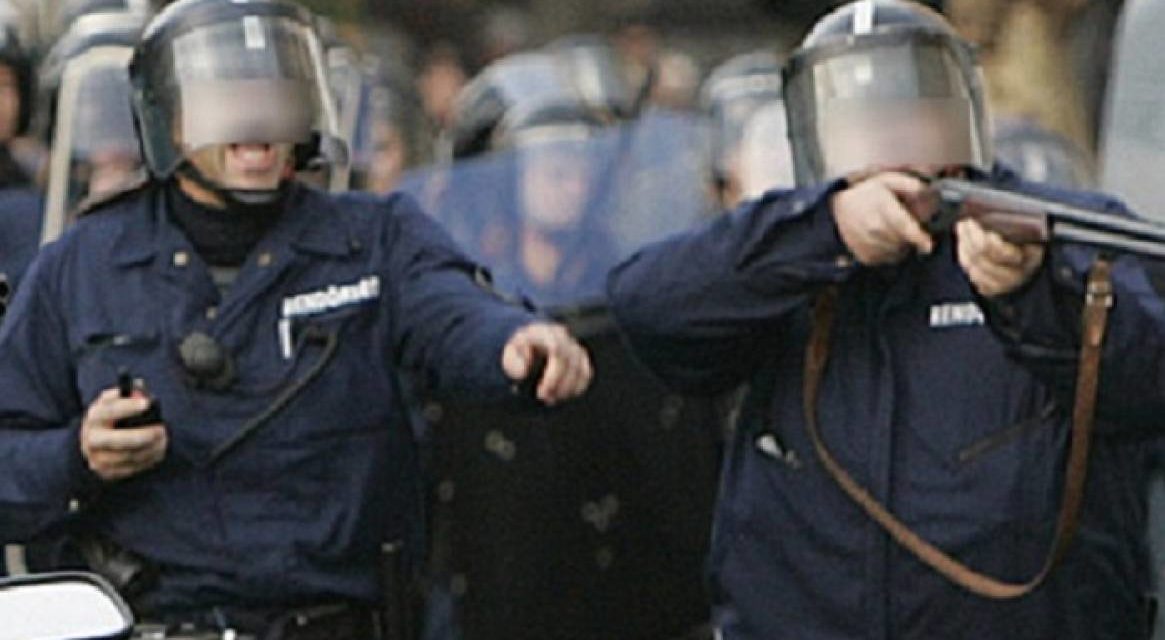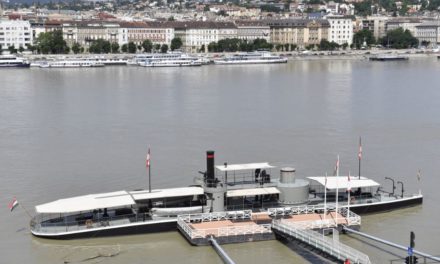The work of the Civil Justice Committee founded by CÖF-CÖKA (e.g. the analysis published on our portal by Tamás Fricz) basically presents the crimes committed during communism, which have not been investigated and thus remained without consequences, but about the most serious crime of the times after the regime change, the 2006 Gyurcsány terrorist attack they didn't forget me either. The analysis of constitutional lawyer Dr. Attila Magyar-Zsolnay presents the antecedents of the brutal police actions, the background of what happened then and the reasons for the lack of accountability.
The Öszöd speech
The series of demonstrations in Kossuth Square in September-October 2006 was caused by the Ószöd speech delivered on May 26, 2006 at the closed meeting of the MSZP faction in the government resort in Balatonőszöd, and then leaked on September 17, 2006.
In order to win the elections, Ferenc Gyurcsány denied Hungary's unstable economic situation to the people. He admitted this continuously perpetrated lie to the parties of the then government coalition (MSZP-SZDSZ) in the Balatonőszöd resort, and also that a strict economic policy is needed in the future.
Gyurcsány did not widely acknowledge the above in front of the people, i.e. Gyurcsány is lying when he says that, contrary to previous lies, a "truth was told" in Őszöd. The people got to know the Ószöd speech when it was leaked.
Before the 2006 elections, Gyurcsány had to report to the European Commission on the fulfillment of the provisions of the convergence program. Gyurcsány also prepared a report with untrue content and false data. He did not tell the truth not only to the citizens of Hungary, but also to the leaders of the European Union. Magyar Nemzet's Brussels correspondents István Lovas and Endre Barcs also reported on this. Socialist finance commissioner Joaquin Almunia finally accepted as a kind of compromise that the convergence program should only be submitted in September 2006 after the elections.
The condition for this was that the Prime Minister himself had to inform the Hungarian public about the actual situation in the country. The socialist party program, based on false data and containing unfulfillable commitments, could not be adhered to after the election was won. Gyurcsány misled public opinion, the opposition parties, and the president of the republic by consciously keeping the truth silent. These disinformations brought Prime Minister Ferenc Gyurcsány's mandate back to a state of apparent legitimacy, it was read Géza Herczegh , Éva Terstyánszkyné Vasadi and János Zlinszky in response to the Gönczöl report.
There is no official, unequivocal proof of the identity of the "leaker" of the Ószöd speech, but due to the above pact, it is likely that the leak was commissioned by Gyurcsány, in accordance with his interests. The prime minister could also hope that his popularity as a "teller of the painful truth" could increase.
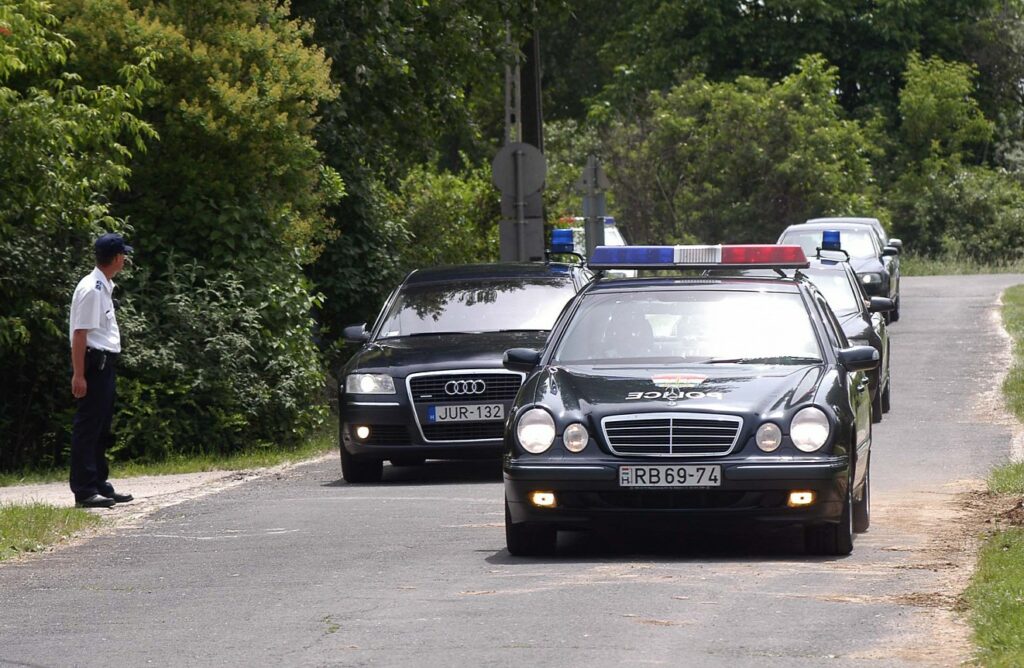
Öszöd "still life" (photo: MTI/László Beliczay)
The former prime minister is still unable to recognize the weight of the fact that he lied about Hungary's situation in order to win the election, then admitted it at a closed party meeting , but did not make it public for months. When he then decided to make the content of the speech public due to the fulfillment of international promises and, most likely for his own political reasons, this caused a legitimate indignation among the people.
Gyurcsány later admitted that perhaps he should not have used profanity in his "honest" speech. However, he forgets that if someone uses words that do not tolerate printing ink about his own country, Hungary, it causes much more indignation than the use of harsh terms in general.
On the results of this legitimate indignation, in 2006. on September 17, a crowd of outraged citizens took to the streets. The several-day spontaneous demonstration on Kossuth Square began, which lasted until October 23, 2006.
September 18, 2006: "siege" of the headquarters of Hungarian Television
Ignácz regarding what happened on September 18, 2006 .
Referring to the municipal election campaign, the police, breaking with their previous practice, declared the demonstrations an election rally. According to the Ignácz report, this misclassification was one of the precursors to the mishandling of the demonstration. If the unannounced events had been classified by the police or the political power exercising their supervision as falling under the right of assembly, but not dispersed, then the police would have prepared with larger police forces to secure the demonstration in accordance with the right of assembly. However, by doing so, the authorities would have recognized the unsustainability of the practice carried on for years - i.e. banning and dispersing demonstrations with reference to the lack of notification, the traffic order, and the lack of security on other routes.
Ferenc Gyurcsány and József Petrétei gave information directly to Deputy Árpád Szabadfi, is replacing National Police Chief Ferenc Bene
As the report of the Civil Lawyers Committee quotes the Internet news portal Index: " The prime minister said that he was in direct contact with the deputy national police chief on the night from Monday to Tuesday" . Based on the police law, the Prime Minister, through the Minister of Justice and Law Enforcement, József Petrétei, could have instructed the national police chief to send additional units to Szabadság Square, protecting the television workers and the police units stationed in front of the headquarters.
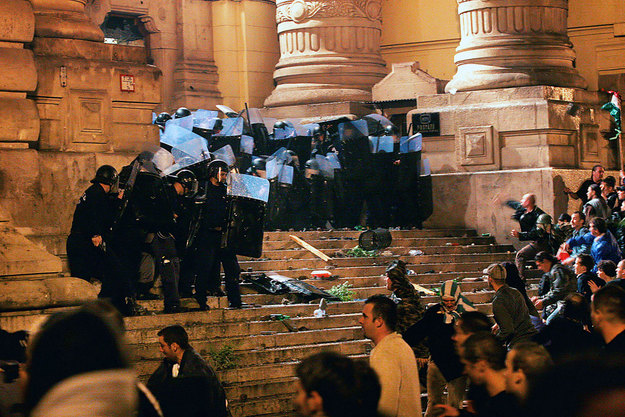
Perhaps it is no coincidence that only a handful of poorly equipped police protected the building (photo: MTI/Lajos Soós)
According to Section 94, Paragraph (3), Point c) of the Police Act in force in 2005 (Act XXXIX of 1994, hereinafter: Rtv.), the minister responsible for the management of the police ensures the execution of tasks defined for the protection of public safety and internal order. In accordance with point f) of the above paragraph, it takes care of the police inspection. The Rtv. According to Section 4, point (1) and Section 5, paragraph (1), point a), the minister may issue instructions to the police. The Rtv. According to § 5 (3), the minister can give new individual instructions to the national police chief. The prime minister and the minister made a professional mistake when, although they could have given according to their powers, they did not give instructions to protect the headquarters of the television station. József Petrétei learned his lesson and offered his resignation due to his inability to handle the situation, which Ferenc Gyurcsány did not accept.
József Petrétei, who as the Minister of Justice and Law Enforcement was responsible for the supervision of the police during the above period, also answered the subcommittee's questions on July 7, 2010. Petrétei told the subcommittee that on September 18, 2006, he was in contact by phone with the then Deputy National Police Chief Árpád Szabadfi. Since he did not consider himself competent in police professional matters, he did not use his authority to issue specific instructions as stipulated in the Police Act. Petrétei spoke with then Prime Minister Ferenc Gyurcsány two or three times, and the Prime Minister was waiting for a situation report from the minister on these occasions.
Petrétei said that if Ferenc Gyurcsány gave instructions to the police regarding the "siege" of the headquarters in accordance with his interview on TV2, he did so by bypassing the minister. Based on the above provisions of the Police Act, the government was only authorized to instruct the police in a specific case through the minister. Ferenc Gyurcsány did not have such rights.
According to the law, the government instructs the police through the minister, the possibility of a direct instruction from the prime minister does not follow from the interpretation of the text of the law. In response to the committee's question, Petrétei stated that he had been at home since 9:00 p.m. and watched the events on television. The former minister stated that Árpád Szabadfi informed him about the events that took place in front of the television headquarters. The minister at the time kept in touch with the police chief by phone, and the information functioned continuously.
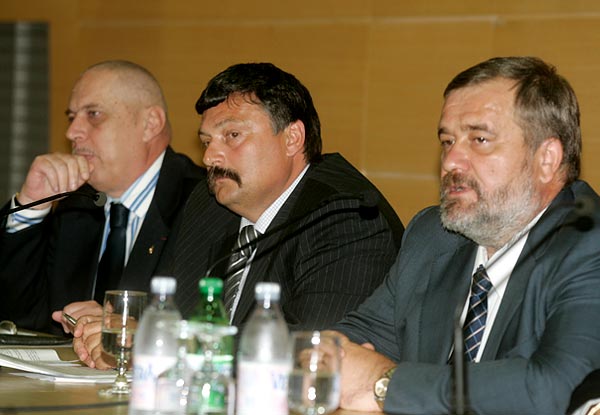
He mentioned football hooligans Gergény, Szabadfi and Petrétei (photo: MTI)
Petrétei stated the following about why he offered his resignation to the Prime Minister on September 19, 2006: "I think that if a public building could be occupied in Hungary, and the police are not in a position to prevent it, therefore, someone has to take the political responsibility. And since the Minister of Justice and Law Enforcement was responsible for the police, I considered it necessary to offer my resignation. If only because it became clear to me that I am not suitable for leading the police in the sense that it would have been expected. On the other hand, I thought that such a political responsibility makes it clear that the police failed during the siege of the TV headquarters" . To Mária Wittner's question as to why she did not issue an operational order as minister, Petrétei replied that it was because the current law only gives the minister authority to give instructions, but not actual management and command, in relation to the police. However, it was his duty to amend the legislation necessary in connection with the unexpected situation and to investigate what happened.
Árpád Szabadfi, the deputy national police chief, who performed his duties in the absence of national police chief Ferenc Bene, who was attending a conference in Brazil, told the subcommittee that the then prime minister Ferenc Gyurcsány called him on the phone on September 18, asking for information about what happened in front of the headquarters. The prime minister asked the police chief to take all legal steps to protect the headquarters. On the said night, Szabadfi called Ferenc Gyurcsány two more times for information, then the next day, September 19, Tuesday, he spoke with him and Minister Petrétei. In the management structure at that time, the authorization of police measures was the responsibility of the Director General of Public Security, and this task was also performed by Szabadfi. On September 18, 2006, Szabadfi was in the Parliament, in the office of a sub-department manager, so he was able to monitor the events close to the scene. The specific security operation was directed by the security commander, who at the time of the Szabadság Square events was the Budapest captain Péter Gergényi Lajos Lapid They gave instructions as to which unit should go where according to the specific operational situation. While Szabadfi was talking to Ferenc Gyurcsány, he did not receive any instructions from Justice Minister József Petrétei.
Dr. Ferenc Kondorosi , the former state secretary of the Ministry of Justice and Law Enforcement, said that in order to ensure the right to assemble before the municipal election, the spontaneous demonstrations held on September 17, 2006, due to the Gyurcsány speech, held in and around Kossuth Square was declared an assembly. This truly creative solution, thanks to which the demonstrations did not have to be announced, was not considered a bad idea by Kondorosi. On September 18, 2006, Kondorosi was at home, working on a major project, and did not consult with ministerial and police leaders. The former state secretary did not consider this fact to be appropriate afterwards. In response to the committee's chairman's question, Kondorosi said that it is illegal for the Budapest police chief to report directly to the prime minister instead of the minister (or, in the case of obstruction, the substitute state secretary).
At the committee hearing, László Bene said that József Petrétei, the Minister of Justice at the time, decided on the classification of the election assembly. It is also clear from the above-mentioned minutes that this does not reflect the individual position of the minister, but the position of the government. Referring to the municipal election campaign, the police, breaking with their previous practice, declared the demonstrations an election rally. According to the Ignácz report, this misclassification was one of the precursors to the mishandling of the demonstration.
The minutes of the commission's hearings and the minutes of the staff meeting on September 18, 2006 revealed that politics, not the police, decided that anti-government demonstrations are considered election rallies , which are not subject to the obligation to notify in advance. Former National Police Chief László Bene confirmed at his committee hearing that the Minister of Law and Justice József Petrétei made a decision on this issue, and even based on the minutes, this reflected the government's position.
If the unannounced events had been classified by the police or the political power exercising their supervision as falling under the right of assembly, but not dispersed, then the police would have prepared with larger police forces to secure the demonstration in accordance with the right of assembly. However, by doing so, the authorities would have recognized the unsustainability of the practice carried on for years - i.e. banning and dispersing demonstrations with reference to the lack of notification, the traffic order, and the lack of security on other routes.
Ferenc Szabó , the commander of the Republic Guard Regiment, said at the police staff meeting: "the members of the MSZP faction will decide how the local bodies will react to the discontent that has erupted".
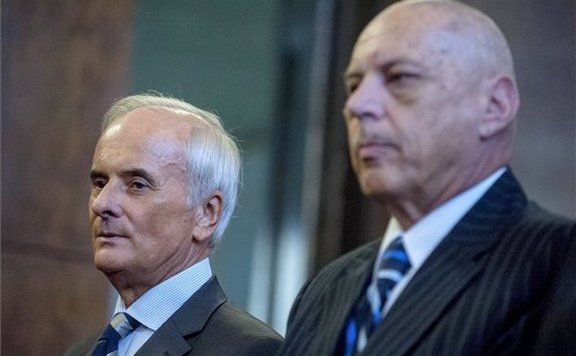
László Bene (left) and Péter Gergényi (Photo: Magyar Hírlap)
Based on the statement made by the former national captain László Bene before the subcommittee, it is clear that the detection and prosecution of those responsible became impossible due to the actions of the former Prime Minister Ferenc Gyurcsány. According to László Bene, after Budapest police chief Péter Gergényi withdrew his request for retirement despite his and the support of the minister of justice and law enforcement at the request of the prime minister, he was not in a position as a national police captain to initiate proceedings related to establishing Péter Gergényi's responsibility. The former national police captain interpreted the Prime Minister's support given to Péter Gergényi as an authorization to fail to act as his superior.
Árpád Szabadfi confirmed that he spoke with the Prime Minister two or three times during the evening, and even consulted on the phone with György Szilvásy , the minister in charge of the Prime Minister's Office. There was no written record or reminder of these telephone conversations. Ferenc Gyurcsány and György Szilvásy did not appear before the subcommittee.
of Ferenc Gyurcsány can be determined in the sense that, in violation of the provisions of the police law, he gave instructions to Árpád Szabadfi, who replaced the absent Ferenc Bene, and to Budapest police chief Péter Gergényi, not through the professional minister, but by bypassing it. The exact contents of these telephone instructions are not available to us - and it is unlikely that their contents will ever be made public.
Gyurcsány and György Szilvásy, the minister supervising the secret services, also committed a violation when they did not appear before the subcommittee of the parliament headed by Gergely Gulyás.
Gyurcsány is also responsible for not accepting the resignation of Péter Gergényi, the main professional responsible for the police violations in 2006. The subsequent events prove that the former prime minister needed Bács Kiskun, a chief captain who was willing to use the "hard hand method" even against his own police subordinates, and who did not shy away from violations of the law.
(to be continued)
Author: Attila Magyar-Zsolnay, constitutional lawyer
(Cover image source: NJSZ)

